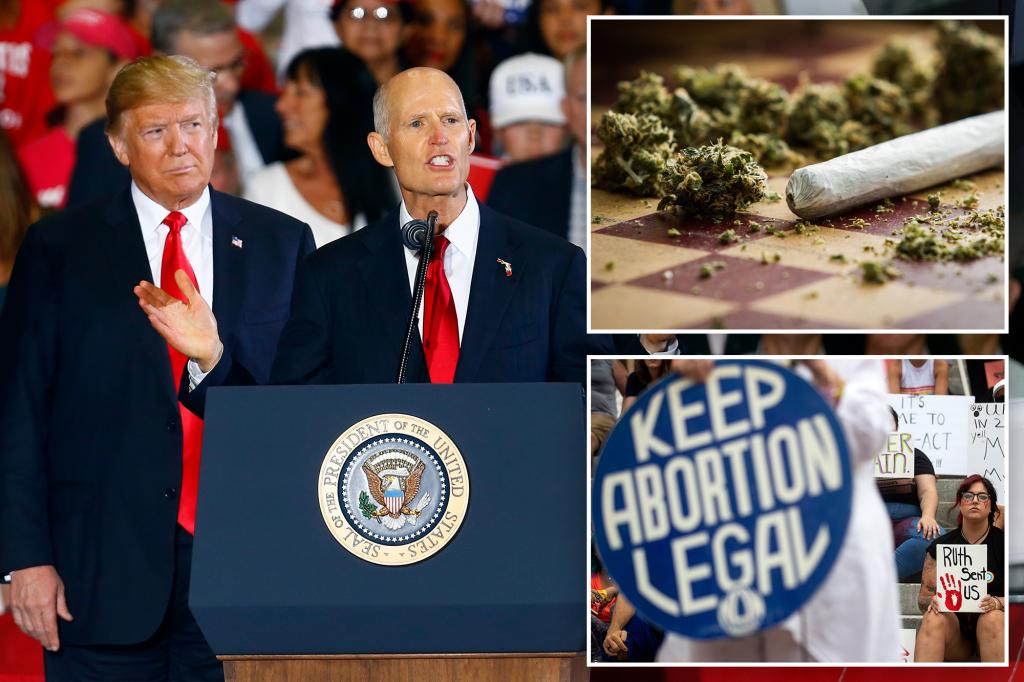According to a new poll, Floridians are leaning towards electing Donald Trump as president and re-electing Rick Scott as senator. The survey, conducted by the University of North Florida, shows Trump leading Kamala Harris by 7 points in a two-way race. Scott is also ahead in the polls, with 47% support compared to Democrat Debbie Mucarsel-Powell’s 43% from 774 likely voters in the state. Independent voters will play a crucial role in both races, with Trump having a 12-point lead among them, while Scott has a minimal 2-point advantage. These results are promising for Republicans, given the state’s significant Republican advantage in voter registration.
Poll director Dr. Michael Binder pointed out that while Trump has a larger lead than Scott, the senator has a history of winning close statewide elections in Florida. Despite the state becoming more conservative over the years, Scott’s race may still be close. Interestingly, half of the Republicans surveyed in the poll support the legalization of marijuana and abortion rights, showing a divergence from the typical party platform. Amendments legalizing marijuana and removing restrictions on abortion, including a six-week ban, are projected to pass with at least 60% of the vote.
Amendment 3, which allows for the adult personal use of marijuana, has 64% support, while Amendment 4, concerning limiting government interference with abortion, has 69% support. These amendments rebel against the views of the state’s Republican leaders, who have been vocal in their opposition. However, a majority of independents and Democrats in Florida are in favor of the amendments. While Republicans are more divided on these hot-button issues, a majority of voters outside the party support the measures.
The legalization of marijuana has 63% support among independents, and the abortion measure has 71% backing. Democrats overwhelmingly support both amendments, with 79% in favor of legalization of marijuana and 87% wanting to lift anti-abortion restrictions. Despite public support for these amendments, there is still uncertainty surrounding the campaigns against them and potential financial impacts. The abortion amendment faces challenges related to revenue, legal costs, and the possibility of state funding for abortions.
Binder cautions that the final approval of these amendments will depend on meeting the 60% threshold set by Florida legislators. While there is a possibility that the amendments may fail to reach this threshold, the current state of the polls indicates that Florida voters are inclined to re-elect Republicans to important offices while also supporting measures that deviate from traditional Republican policies. The dichotomy between the candidates and the desired amendments highlights the complexity of voter attitudes in Florida and the shifting political landscape in the state.


